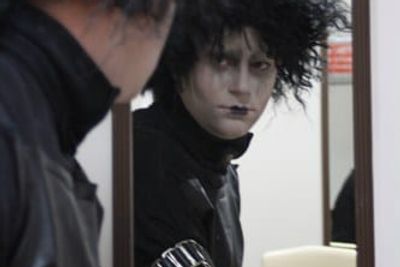Samhain is a word that is likely unfamiliar to most, although it is celebrated annually as Halloween. Like all major American holidays, this Celtic harvest
Many culture critics and sociologists credit the gay community with this shift. Jeff Kugelmass, an anthropologist at the University of Florida who wrote a book on the subject, has proclaimed Halloween as the gay "high holiday" where a disenfranchised group can celebrate openly exactly what society has disenfranchised them for: their "otherness." A gay presence is certainly detectable in major cities like New York and LA, and even Nashville at events like costume parties and Mardi Gras-like parades. So, if this is true, and Halloween is indeed the gay holiday, then why?
"My boyfriend has always been like this," says nursing student Steven Turner. "He hates going home for Thanksgiving or Christmas, but he loves going out on Halloween." Turner thinks the homosexual appeal lies in the fact that Halloween lacks the heteronormative connotations tacked on to other holidays. These connotations have traditionally excluded gays.
"It isn't about religion or family values or patriotism. It's about being outrageous and having a license to do so," Turner says.
"Because it's Satan's holiday and we are all sinners," says Joshua Buckman with a smile. Perhaps it is exactly this sort of irony that is the ultimate appeal.
Buckman goes on to explain the duality that most gays had to learn to live with growing up: "It's hard to be yourself around everybody, especially when you know someone doesn't approve. It can feel dangerous, so you learn to hide until you just can't stand it anymore and you finally come out."
Buckman sees Halloween as an opportunity to flaunt that duality to the extreme. His boyfriend, artist Steven Lafferty, agrees.
"It's the only night when the perverse and irregular is embraced," he says.
Lafferty believes that this acceptance of the "other" makes people feel more connected because they all have something to hide. Everyone is an "other" to some degree.
"You can be anything you want for one night," he says. "It's escapism and gays in particular are drawn to that as social outsiders."
There probably is not one definitive answer to why the gay community has adopted Halloween as their own. More likely it provides evidence of some common gay sensibility with every individuals' own personal reasons why. Whatever those reasons, it can not be denied that the gay community has a lot of power as cultural engineers now and in the future.
